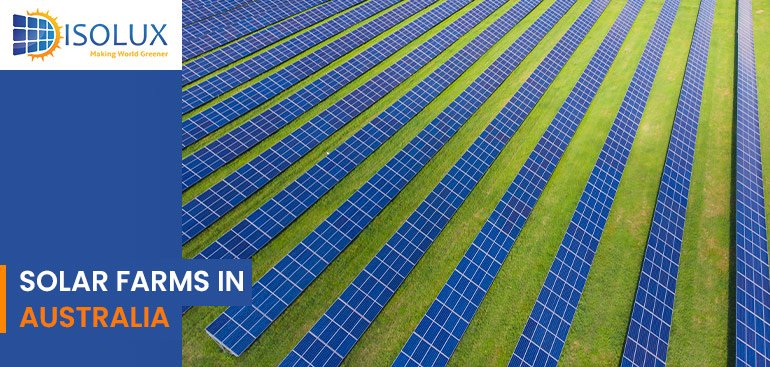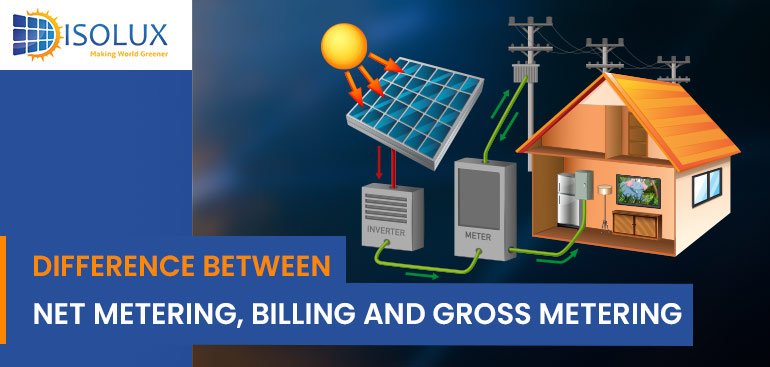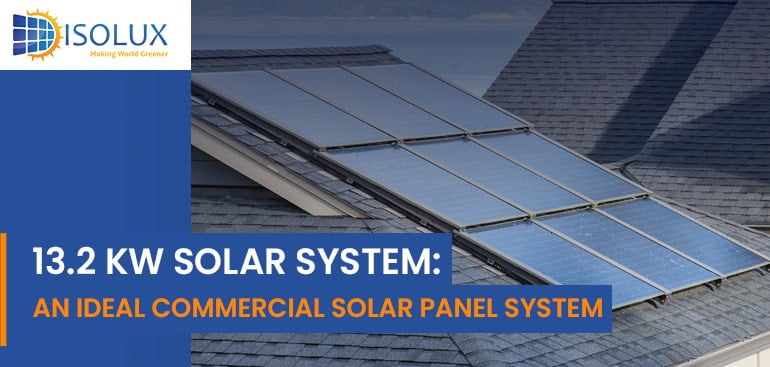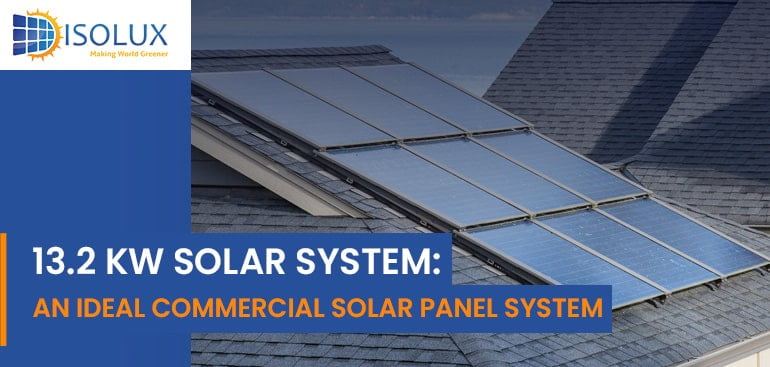Australia’s vast landscapes and abundant sunshine make it an ideal location for solar farms, a key player in the nation’s journey towards renewable energy. As climate change concerns mount and the global community shifts towards sustainable energy solutions, solar farms are becoming increasingly crucial. This blog explores the concept of solar farms, their workings, costs, and power production capabilities, spotlighting Australia’s largest solar farms.
Commercial solar energy is becoming an increasingly popular choice for businesses looking to reduce their carbon footprint, lower energy costs, and contribute to a more sustainable future. In this blog, we will explore the ins and outs of the commercial solar system in Sydney, from understanding its concept to choosing the right solar system for your business.
The first thing that comes to the mind of most individuals when they hear the word solar panels is a residential rooftop solar system. However, there are commercial solar panels, too. For those running a business, commercial solar panels in Sydney would be an ideal choice. Running any business requires a tremendous amount of energy (power). The monthly electricity bills form a large part of the expenses of most businesses in Australia. With a commercial solar panel, an Australian business can save money on electricity bills and also play a key role in saving the environment.
There is a huge demand in Australia for generating electricity at home using solar panels from CEC accredited solar installers. The reason behind this increasing demand popularity is the availability of cost-effective solar panels in Australia along with the rebates offered by the Australian Government. The electricity we use in homes and offices is tracked by an electric meter. Depending on the number of units consumed, the electricity bill is generated.
Are you searching for solar panel installers near me?
If this is the case, you must first understand metering and billing in Australia.
What Happens In Normal Metering?
In the case of normal metering, there is a unidirectional meter installed by the power utility company. In this type of metering, the installed meter measures the amount of electricity consumed by your house.
Net Metering
- Net metering makes solar energy more affordable and economical for Australians.
- When the solar panels generate excess power, it is sent to the grid. This power can be taken back from the grid when the solar panels are generating less power.
- Net metering involves the use of a bi-directional meter, which records the power consumed by you (import) and the excess power that is sent back to the grid (export).
- In net metering, the consumption from the grid is recorded as ‘Import’ and excess electricity pumped is recorded as ‘Export.
- In the case of a grid-tied system, the utility company sends the electricity received from the solar PV system to others.
- In net metering, the energy generated by the solar panels will be first used to power your home.
- You will be paid a rebate for supplying excess power to the grid.
- With net metering, you will be compensated at a retail rate, which is the same rate at which you purchase electricity from the grid.
Net Billing
- Net billing is different from net metering.
- In net billing, the excess electricity sent to the grid is sold at a lower cost than what you will buy from the utility as a customer.
- In net billing, you will not get a credit on the utility bill, but you will get the dollar value (wholesale electricity rate).
- For example, if the retail rate is $0.10, the wholesale supply rate would be $0.5.
Gross Metering
- In gross metering, you cannot use the electricity generated by the solar PV system installed by the CEC-accredited solar installers.
- The power generated by the solar panels is sent directly to the grid first, where it is distributed to various customers.
- In gross metering, the utility pays a fixed feed-in tariff to the customer, which is lower than the retail tariff.
- With gross metering, you will continue to receive monthly electricity bills based on your usage.
- You will get paid for the electricity supplied to the grid separately.
Between net metering and net billing, net metering should be the preferred choice for Australians who want to generate solar power from the solar panels installed by CEC accredited solar installers. On the other hand, gross metering is a good option for Australian homeowners who have ample space but don’t want to use the generated solar power to power their homes.
Read Next Blog: How Do Half-Cut Solar Cells Help in Increasing Solar Productivity?
In today’s world, inflation is making everything expensive. Electricity is no exception to this. Many Australian businesses have already opted for solar power by installing commercial solar panels Sydney.
When it comes to the best residential and commercial solar panels in Sydney, the 13.2 kW solar system is one of the best-selling and recommended solar systems. Once you have decided to invest in a commercial solar panel system, the 13.2kW solar panel system would help you lower the electricity bills every month. It will help your company’s bottom line grow even more.
When it comes to the best residential and commercial solar panels in Sydney, the 13.2 kW solar system is one of the best-selling and recommended solar systems. Once you have decided to invest in a commercial solar panel system, the 13.2 kW solar panel system would help you lower your electricity bills every month. It will help your company’s bottom line grow even more.
Make Solar Work For Your Business and Organization
This is the most commonly installed commercial solar panel system in Australia.
Considering the rising electricity bills and power consumption, it makes sense for you to opt for the solar panel, keeping in mind its durability and affordability.
What Is The 13.2 kW Solar System?
- This solar system is a grid-tie solar system powering commercial spaces and homes in Australia.
- It can be installed easily on any type of surface either flat or tilted.
- The monocrystalline solar panels give the 13.2 kW solar system the perfect appearance and finish.
- The top-notch photovoltaic cells are capable of tapping sunlight with improved efficiency.
- The High-grade solar PV cells also offer quick energy conversion rates and have a long life.
- It is manufactured according to the guidelines of the Clean Energy Council (CEC).
Where Is The 13.2 kW Solar System Used?
There are several locations and business premises that can leverage the benefits offered by a 13.2 kW solar power system. These include:
- Small and large factories
- Solar farms
- Large scale commercial projects
- Commercial properties
- Investment Properties
- Schools, universities, and colleges
Cost of The 13.2 kW Solar System
- The price tag of this one of the best commercial solar panels in Sydney increases with the increase in specifications.
- The general thumb rule regarding the cost of installation of a standard solar PV system is approximately $1 per watt.
- It will cost approximately $6999 to $17999 inclusive of the rebates and taxes.
Factors Affecting The Price of 13.2 kW Solar Power System
- Energy consumption
- Type of installation
- Size of the inverter
- Size of the battery
- The capacity of solar cells
The specifications directly influence the total cost of this commercial solar panel system. However, in the end, it comes down to the size of the commercial premises or property on which it is to be installed.
How Much Energy Is Generated By a 13.2 kW Solar Power System?
- On average, a 1 kW solar system generates approximately 4 kWh of electricity, every day.
- The 13.2 kW solar system has the potential to generate 100 kWh of energy at an efficiency rate of 75%.
The amount of energy produced depends on several factors such as:
- Geographical location
- Tilt angle and alignment
- Local weather and climatic conditions
- Amount of shading
- Inverter efficiency
- Age of the solar panels
- Performance metrics of solar panels and other components
If you are exploring commercial solar panels in Sydney, the 13.2 kW solar power system would be an ideal choice for industrial units and commercial establishments.







